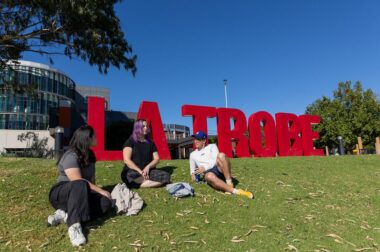Data released today by Medical Deans Australia and New Zealand (Medical Deans) revealed a growing interest from medical graduates in pursuing a career as a Rural Generalist.
The discipline jumped to rank as the 6th highest choice for the Australian medical students who graduated in 2023, with 7 per cent of respondents to Medical Dean’s annual survey of graduating students expressing this preference.
Interest in a rural career also continues to be strong, with 32 per cent of respondents indicating a preference to work in a non-metropolitan area. Coming from a rural background and spending more of their course learning in a rural environment were associated with this difference.
President of Medical Deans, Professor Michelle Leech AM, said, “the data supports the drive and investment to enable students to study and learn in the regions where we need them and where they want to be, with many more of our students now able to undertake their whole or substantial periods of their medical program in regional and rural areas.”
Of those MSOD respondents who undertook a rural placement of more than a year’s duration, 34 per cent expressed a preference for practice in a rural town or remote community.
“The MSOD data supports what we hear from our students that these positive and valuable learning experiences have a strong impact and play a key role in encouraging them to consider the rewards that come from a rural career,” Professor Leech added.
The 2024 Medical Schools Outcomes Database (MSOD) Report1 also revealed that General Practice remains graduates’ most preferred specialty, with the proportion of students considering rural generalism increasing to 7%.
Professor Leech said “given the long list of possible future careers to choose from, it is encouraging that specialising in General Practice has been the most popular for the last few years, outranking physician and surgical training and other disciplines. Certainly, from the perspective of absolute numbers, we need an even higher proportion of the graduating cohort to pursue general practice training but this is where experience in the early years of practice as a junior doctor is crucial.”
1 Medical Deans’ Medical Schools Outcomes Database (MSOD) National Data Report 2024, Table 32,
https://medicaldeans.org.au/data/medical-schools-outcomes-database-reports/
Key points of interest in the Report:
· A continuing strong interest from graduates in pursuing a career based outside a capital city
-
- 32% of respondents indicated a preference for a career working outside a metropolitan area
(table 25)
-
- Students from a rural background expressed higher levels of desire to practice in rural or regional locations
- 35 per cent of respondents from rural backgrounds had a preference to work in a large, medium or small rural town, or remote/very remote community versus 7% of respondents from a non-rural background (table 26)
- Of those students undertaking a rural placement of more than a year, 34 per cent expressed a preference for practice in a large, medium or small rural town, or remote/very remote community (table 27)
- The comparative figures are 23% for those where the duration was 6 to 12 months, 13% where it was up to 6 months, and 9% for those not undertaking a rural placement
- Members of a university Rural Health Club were 4 times more likely to express a preference for a future practice outside a capital city.
- Students from a rural background expressed higher levels of desire to practice in rural or regional locations
- The overall numbers of those interested in a GP career remain steady:
- With an increasing proportion of these preferencing Rural Generalism
- The most highly ranked factors influencing preferred future specialty remain “alignment with personal values” and “atmosphere/culture typical of the discipline” (table 35)
- Students continue to express high levels of interest in their future career involving teaching (80%) and research (51%), although both of these continue to decrease (tables 28 and 29)
- Half of domestic students and over a quarter of international students want Indigenous health
as a part of their future medical career (table 30)
- 79% indicated they were ‘satisfied’ or ‘very satisfied’ with their medical program. The
proportion ‘dissatisfied’ or ‘highly dissatisfied’ was 9% (table 19)
- 81% ‘agreed’ or ‘strongly agreed’ their medical degree was preparing them well to work as an intern, which is a slight increase from last year, and 5% saying they ‘disagreed’ or ‘strongly
disagreed’ (table 20)
Contact details:
Medical Deans at [email protected] or on 0449 109 721


